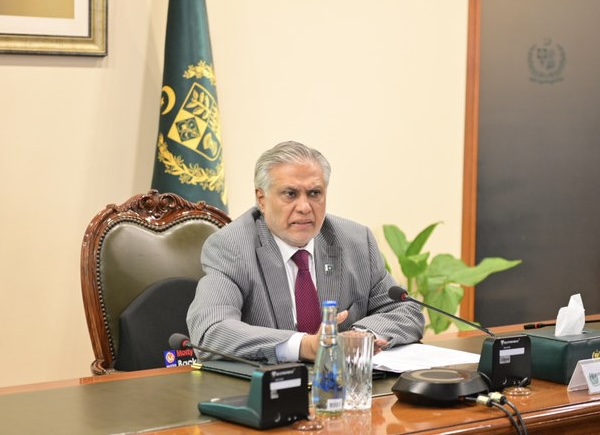Pakistan retracts support for Trump’s Gaza peace plan, citing differences with Muslim nations’ draft; move reflects domestic sensitivities and regional alignment amid ongoing Middle East conflict diplomacy.
In a surprising shift, Pakistan’s Deputy Prime Minister and Foreign Minister Ishaq Dar on Friday reversed Islamabad’s earlier backing of US President Donald Trump’s 20-point Gaza peace plan. The announcement comes just days after Pakistani Prime Minister Shehbaz Sharif had publicly endorsed the initiative, praising Trump’s efforts to secure a ceasefire and a lasting resolution to the conflict.
Dar explained that the published 20-point plan differed significantly from the draft originally proposed by Muslim nations. “I made it clear that the 20 points that President Trump made public are not ours. Changes were made to our draft. I have the record,” he said while speaking on the floor of the National Assembly, as reported by local daily Dawn. He added, “This is the end result, and there is no room for politicking,” signalling a firm official stance.
Domestic Backlash After Initial Endorsement
The reversal follows a statement by Prime Minister Sharif, who earlier welcomed Trump’s peace plan and hailed its potential to bring stability to the region. “I am also convinced that durable peace between the Palestinian people and Israel would be essential in bringing political stability and economic growth to the region,” Sharif had posted on X, formerly Twitter. He praised Trump’s leadership and the efforts of US Special Envoy Steve Witkoff in facilitating negotiations, while stressing the importance of a two-state solution to ensure lasting peace.
Sharif’s initial endorsement sparked widespread criticism domestically, with opposition leaders and analysts questioning Pakistan’s alignment with a plan viewed as heavily influenced by US priorities rather than a consensus among Muslim nations. The criticism appears to have prompted Dar’s clarification, seeking to align Pakistan’s official position with the broader stance taken by the Organisation of Islamic Cooperation (OIC) and other regional allies.

20-Point Peace Plan
Earlier this week, the Foreign Ministers of Pakistan, Qatar, Jordan, the United Arab Emirates, Indonesia, Turkey, Saudi Arabia, and Egypt had jointly expressed appreciation for Trump’s efforts, stating that they were ready to engage constructively to finalise an agreement ensuring peace, security, and stability in the region. The White House released the 20-point proposal as Trump met Israeli Prime Minister Benjamin Netanyahu, emphasising that its acceptance by Hamas could lead to the release of hostages and an end to the ongoing conflict.
During the White House briefing, Trump highlighted the urgency of Hamas agreeing to the terms. “Now it’s time for Hamas to accept the terms of the plan that we’ve put forward today. I’m hearing Hamas wants to get this done,” he said. The plan’s key points include a ceasefire in Gaza, a framework for interim governance, and steps toward a two-state solution under international supervision.
Analysts note that Pakistan’s abrupt reversal illustrates the delicate balancing act Islamabad faces in navigating international diplomacy, domestic opinion, and its historic support for Palestinian rights. By distancing itself from the publicly released plan, Dar has reaffirmed Pakistan’s commitment to a Muslim-nation consensus while seeking to maintain credibility both at home and in the broader Islamic world.
While Pakistan had initially appeared supportive, the latest clarification underscores the complex geopolitical dynamics surrounding Trump’s initiative and highlights the differing priorities among regional stakeholders. The reversal is likely to prompt renewed discussions in Islamabad and among OIC members on how to engage with the US-led peace efforts while protecting collective interests.
The move also demonstrates Pakistan’s sensitivity to domestic opinion, where support for Palestinian causes remains a politically significant issue. Observers suggest that Islamabad will continue to engage diplomatically with both Washington and regional partners while stressing that any agreement must reflect a unified Arab and Muslim position.













